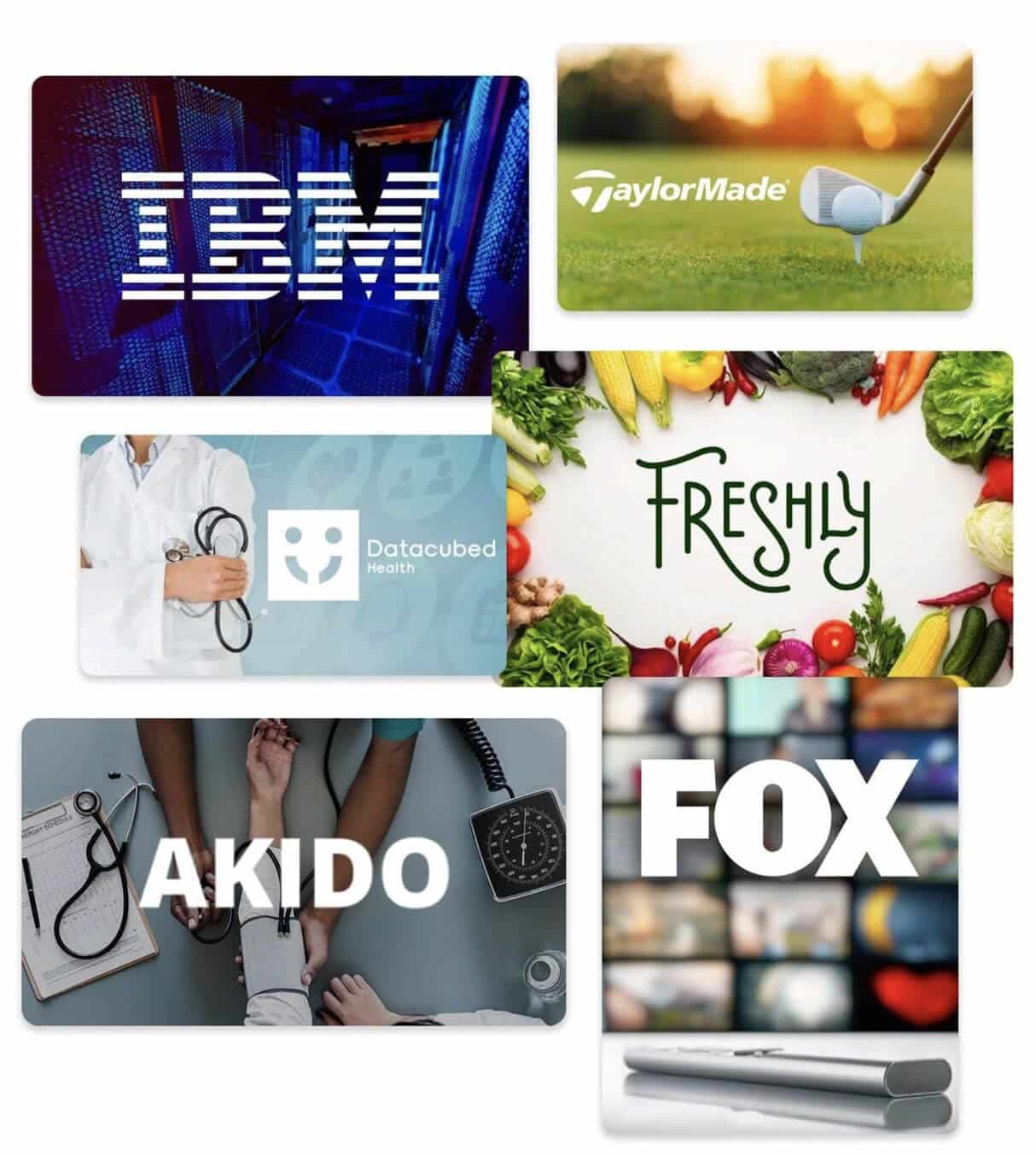How SaaS in Healthcare Make a Difference
The Rapid Growth of SaaS in Healthcare: Revolutionizing the Industry

The Importance
SaaS in Healthcare
The healthcare industry has undergone significant transformation in recent years, with technology playing a crucial role in enhancing patient care, streamlining operations, and improving overall efficiency. One technology that has gained tremendous popularity and disrupted the healthcare landscape is Software as a Service (SaaS). This article will explore the impact of SaaS in healthcare and how it is revolutionizing the industry.
What is SaaS?
Before diving into the specific applications of SaaS in healthcare, let’s first understand what SaaS is. SaaS, also known as cloud software or on-demand Software, is a software delivery model where applications are hosted by a provider and made available to customers over the Internet. Instead of installing and maintaining Software locally, users can access the Software through a web browser, saving them the hassle of infrastructure management and software updates (1).
“The service provider manages the hardware and software, and with the appropriate service agreement, will ensure the availability and the security of the app and your data as well. SaaS allows your organization to get quickly up and running with an app at minimal upfront cost.”
– Microsoft
Our Executive Team

Common Industries we provide SaaS in Healthcare:
Healthcare & Life Sciences
SaaS & Information Services
Manufacturing
Financial Services & FinTech
Retail & E-Commerce
Insurance
Logistics & Automotive
Travel & Hospitality
The Transformative Power
of SaaS in Healthcare
SaaS has brought about a paradigm shift in the healthcare industry, enabling providers to leverage advanced software solutions without significant upfront investments or extensive IT infrastructure. Here are some key areas where SaaS has made a considerable impact:
Electronic Health Records (EHR)
One of the most critical applications of SaaS in healthcare is developing and deploying Electronic Health Record systems. EHRs digitize patient health information, making it easily accessible to healthcare professionals across different locations. SaaS-based EHR solutions allow for seamless data sharing, improved collaboration, and real-time access to patient information, resulting in better care coordination and enhanced patient outcomes.
Telemedicine: SaaS platforms have revolutionized the delivery of telemedicine services, allowing patients to consult with healthcare providers remotely. These platforms provide secure video conferencing capabilities, virtual examination tools, and integrated communication channels. Patients can now receive medical advice, get prescriptions, and have follow-up consultations without needing in-person visits, saving time and improving access to healthcare.


Common Industries we provide SaaS in Healthcare:

COST-EFFECTIVE DEVELOPERS
Our Software Developers and Engineers cost
on average $45 to $65 per hour

HIGHEST QUALITY DEDICATED TEAMS
Access to the TOP 1% of Nearshore Software Development resources in Latin America

TIME SENSITIVE DEVELOPMENT
Sonatafy’s Nearshore Talent Acquisition can place qualified Software Engineering teams in as quick as 2 weeks
SaaS in Healthcare
Care Make a Difference
Practice Management
SaaS-based practice management systems have simplified administrative tasks for healthcare providers. These systems handle appointment scheduling, billing and invoicing, insurance claims management, and electronic documentation. By automating these processes, healthcare providers can focus more on patient care, reduce administrative overhead, and streamline operations.
Patient Engagement and Communication
SaaS solutions have empowered patients to participate in their healthcare journey actively. Patient portals and mobile applications allow individuals to access their health records, schedule appointments, receive test results, and communicate with healthcare providers securely. This enhanced engagement improves patient satisfaction, encourages adherence to treatment plans, and promotes better health outcomes.
Analytics and Insights
SaaS-based analytics platforms enable healthcare organizations to harness the power of big data. These platforms can aggregate and analyze vast healthcare data, providing valuable insights into patient populations, treatment effectiveness, and healthcare trends. By leveraging this data, healthcare providers can make informed decisions, optimize care processes, and identify opportunities for improvement.

Interested In Working With Sonatafy?
The Benefits of
SaaS in Healthcare
The adoption of SaaS in healthcare brings several benefits to both healthcare providers and patients:
Cost-Effectiveness
SaaS eliminates the need for upfront investments in hardware and software licenses. Instead, healthcare providers pay a subscription fee based on usage, making it more affordable and scalable. This cost-effective model allows small and medium-sized practices to access previously out-of-their-reach advanced software solutions.
Accessibility and Mobility
SaaS-based solutions are accessible from anywhere with an internet connection, allowing healthcare professionals to access patient information and perform tasks on the go. This mobility enhances collaboration and enables timely decision-making, improving patient care.
Seamless Updates and Maintenance
With SaaS, the service provider handles software updates and maintenance tasks. This ensures that healthcare providers always have access to the latest version of the Software without the need for manual updates or disruptions in service. It also eliminates the burden of managing infrastructure and allows healthcare organizations to focus on their core mission of providing quality care (2).
“As patients have become more tech savvy, the integration of technology into healthcare and clinical research has been quite seamless from a patient perspective.”
– Forbes
Scalability and Flexibility
SaaS solutions can quickly scale to meet the growing needs of healthcare organizations. SaaS offers flexibility and agility, whether adding new users, expanding to recent locations, or integrating with other systems. Healthcare providers can adapt the Software to their evolving requirements without significant investments or technical complexities.
Enhanced Security and Compliance
SaaS providers emphasize data security and compliance with industry regulations, such as HIPAA, in the United States. These providers employ robust security measures, including encryption, access controls, and regular audits, to ensure the confidentiality and integrity of patient data. By utilizing SaaS, healthcare organizations can benefit from advanced security practices and reduce the risk of data breaches (3).
“SaaS and apps make it possible to collect, store and analyze vast amounts of healthcare data, providing insights into patient behavior and health outcomes. This data can be used to identify trends and inform decision-making, improving the quality of care and patient outcomes.”
SaaS in Healthcare: Challenges and Considerations
While SaaS offers numerous benefits, healthcare organizations should be aware of specific challenges and considerations when adopting SaaS solutions:
Data Privacy and Security
As healthcare data is sensitive and subject to privacy regulations, healthcare organizations must carefully evaluate the security measures implemented by SaaS providers. It is crucial to ensure that appropriate safeguards are in place to protect patient information and comply with privacy laws.
Integration with Existing Systems
Healthcare organizations often have existing systems, such as legacy EMRs or medical devices. When adopting SaaS solutions, it is essential to assess integration capabilities to ensure seamless interoperability and data exchange between systems.
Reliance on Internet Connectivity
SaaS solutions heavily rely on Internet connectivity. Healthcare organizations must have reliable internet access and a backup plan in case of internet outages to ensure uninterrupted access to critical patient information and services.
Vendor Selection
Choosing the right SaaS vendor is critical for successful implementation. When evaluating potential vendors, healthcare organizations should consider factors such as vendor reputation, experience in the healthcare industry, customer support, and data migration capabilities.
SaaS has transformed the healthcare industry by providing cost-effective, accessible, and scalable software solutions. It has revolutionized electronic health records, telemedicine, practice management, patient engagement, and analytics. The benefits of SaaS in healthcare include cost savings, improved accessibility, seamless updates and maintenance, scalability, and enhanced security. However, healthcare organizations must also consider data privacy, integration, connectivity, and vendor selection when adopting SaaS solutions. By carefully assessing these factors, healthcare providers can harness the full potential of SaaS and drive positive outcomes in patient care.
%
TOP NEARSHORE TALENT
%
ATTRITION RATE
%
ENGLISH PROFICIENCY
RESOURCES DEPLOYED
How SaaS Can Be Used in the Healthcare
Industry: Examples and Applications
Software as a Service (SaaS) has revolutionized the healthcare industry by providing flexible, accessible, and cost-effective solutions to various healthcare challenges. Let’s explore some specific examples of how SaaS can be utilized in the healthcare industry:
Electronic Health Records (EHR)
SaaS-based EHR systems have transformed how patient health records are managed. These systems enable healthcare providers to store, access, and update patient information securely and in real time. SaaS-based EHRs offer interoperability, scalability, and simplified maintenance, allowing healthcare organizations to streamline clinical workflows and enhance patient care.
Telehealth and Telemedicine
SaaS platforms are crucial in telehealth and telemedicine services, facilitating remote consultations, virtual visits, and remote patient monitoring. These platforms provide healthcare providers with the tools for video conferencing, patient data sharing, and remote diagnostics. SaaS-based telehealth solutions have become even more relevant recently, allowing healthcare professionals to reach patients in remote areas, provide remote monitoring services, and ensure continuity of care.
Practice Management
SaaS-based practice management solutions simplify administrative tasks for healthcare providers. These systems offer features such as appointment scheduling, billing, invoicing; insurance claims management and reporting. A SaaS model allows healthcare organizations to streamline administrative processes, reduce paperwork, and enhance operational efficiency.
Patient Engagement and Communication
SaaS platforms enable healthcare providers to engage with patients effectively and improve communication. Patient portals and mobile applications built on SaaS provide access to their health records, appointment scheduling, prescription refills, and secure messaging with healthcare providers. These tools empower patients to actively participate in their healthcare journey actively, enhancing engagement and promoting better health outcomes.
Medical Billing and Revenue Cycle Management
SaaS-based medical billing software automates the billing and revenue cycle management processes. These solutions handle claims submission, payment processing, and reporting. By utilizing SaaS, healthcare organizations can streamline billing operations, reduce errors, improve revenue capture, and ensure timely reimbursement.
Healthcare Analytics
SaaS platforms offer powerful analytics capabilities to healthcare organizations, enabling them to leverage data for informed decision-making and improved outcomes. These analytics solutions can aggregate and analyze clinical, operational, and financial data to generate insights into patient populations, treatment effectiveness, and resource utilization. SaaS-based healthcare analytics empower organizations to identify trends, optimize care processes, and drive continuous improvement.
Compliance and Security
SaaS providers in the healthcare industry offer specialized solutions to address compliance and security requirements. These solutions include HIPAA-compliant data storage, encryption, access controls, and audit trails. By leveraging SaaS for compliance and security, healthcare organizations can ensure the confidentiality and integrity of patient data while meeting regulatory obligations.
Examples of SaaS Solutions in Healthcare:
- Epic Systems: Epic offers a comprehensive suite of SaaS-based healthcare solutions, including EHR, practice management, and telehealth platforms.
- Athenahealth: Athenahealth provides a cloud-based platform for EHR, revenue cycle management, and population health management.
- Kareo: Kareo offers a SaaS-based practice management and medical billing software tailored for small to mid-sized healthcare practices.
- Doxy.me: Doxy. Me is a SaaS telehealth platform enabling healthcare providers to conduct secure and HIPAA-compliant virtual patient visits.
- Practice Fusion: Practice Fusion provides a SaaS-based EHR platform that allows healthcare providers to manage patient records, e-prescribe medications, and access clinical decision support tools.
These examples demonstrate how SaaS transforms the healthcare industry by providing innovative solutions that improve patient care, streamline operations, and enhance efficiency. The adoption of SaaS in healthcare is on the rise, as it offers numerous advantages, such as reduced upfront costs, scalability, ease of implementation, and seamless updates and maintenance.
In addition to the examples mentioned above, SaaS can be used in various other areas of healthcare, including:
Medical Imaging and Picture Archiving and Communication Systems (PACS): SaaS-based medical imaging solutions enable healthcare providers to securely store, access, and share medical images. These platforms offer advanced features for image analysis, diagnostic collaboration, and integration with EHR systems, allowing for more efficient and accurate diagnosis.
Clinical Decision Support Systems (CDSS)
SaaS-based CDSS provides healthcare professionals with evidence-based clinical guidelines, drug databases, and diagnostic support tools. These systems assist in making informed decisions at the point of care, ensuring adherence to best practices and improving patient outcomes.
Health Information Exchange (HIE)
SaaS platforms facilitate secure health information exchange between different healthcare providers and organizations. This enables seamless sharing of patient data, reducing duplicate tests, enhancing care coordination, and improving patient safety.
Population Health Management
SaaS-based population health management solutions, help healthcare organizations monitor and improve the health outcomes of specific patient populations. These platforms leverage data analytics to identify high-risk patients, manage chronic conditions, and implement preventive care strategies.
Compliance and Regulatory Management
SaaS solutions are available to assist healthcare organizations in managing compliance with various regulations and standards. These platforms automate compliance workflows, track regulatory changes, and ensure privacy and security requirements adherence.
Health and Wellness Applications
SaaS-based health and wellness applications empower individuals to manage their health proactively. These applications provide features such as activity tracking, nutrition monitoring, and personalized coaching, helping users maintain a healthy lifestyle and prevent disease.
SaaS in Healthcare Companies
Awards & Recognitions
Helping take our clients’ software development businesses to the next level has been quite an experience, and we are not slowing down any time soon. Providing a memorable experience and far surpassing our customers’ software development and solutions goals is one of the most rewarding experiences of our company to date.
We’re ready to start helping your company grow with our industry-leading custom software development solution, are you?

Earning Trust & Loyalty for our Software Development Services
Our executive team proudly provides complete custom healthcare software development solutions from deployment to completion.
Our client-centric software development solutions have made us the healthcare app development provider of choice for clients such as Akido Labs, Datacubed Health, Sema Technologies, and Semantic AI, among others. With thousands of software development engineers deployed to date, clients love our personalized high-touch approach.
With high-quality delivery web development services and strong customer support and management, we give you the ability to focus on business decisions rather than software development issues.
Sonatafy Technology services can dramatically
improve the SaaS in Healthcare.
Our Software Development Clients Have Spoken.

“We increased our productivity and quality by extending our team with Sonatafy resources. They are part of our ‘family’. Their passion, dedication, experience, and wisdom has been nothing short of impressive.”

“We have been using Sonatafy for software team augmentation. Their vetting process is extremely through and has saved us a huge amount of time. All of the candidates presented have been outstanding and have fit into our team perfectly.”

“The Sonatafy team consists of members who are dedicated, personable, and attentive. They will search tirelessly to match the right talent to meet your skills and budgetary requirements. Regardless of your situation, you cannot go wrong with Sonatafy.”

“The Sonatafy team has continually impressed us with the quality of their engineers — we have found excellent engineering leaders in their contractors who have helped tremendously. They really are an integral part of our team, and we’re very thankful for Sonatafy’s professional leadership in this space. I heartily recommend them to augment anyone’s teams or projects.”

“At IMAIGE Analytics, we are driven by purpose and outcomes. Sonatafy has been the exact type of partner we need to help us deliver on both. They’ve found solutions specific to our purpose and needs, their resources have contributed like long time team members from day one and they seem dedicated to progressively better outcomes from the start. Thanks to the team and to Steve for taking the time to make our business better!”

“The entire team at Sonatafy greatly surpassed our expectations. We require very specific skill sets and the team did an incredible job of screening and selecting top – notch candidates. Sonatafy’s attention to detail, professionalism, open communication, and collaboration with us ensured that we found highly skilled talent that fit seamlessly into our company’s culture. I can’t recommend them strongly enough.”

“Sonatafy makes it easy to find great and professional talent, with their help we have been able to solidify our team. Their process and communication is a refresher and a weight off our shoulders.”

I’ve used Sonatafy Technologies for the last 5 + years at several of my companies both small and large, in a staff augmentation capacity. I have been consistently impressed with the high – quality of technical skills as well as the team member’s high level of engagement and dedication to my projects. I’ve always considered my dedicated Sonatafy resources as members of my team , and their contributions and performance has been excellent. The combination of high performance and afford ability has been an outstanding benefit , and I would highly recommend using Sonatafy Technologies as your near shore technology partner.
The Future of SaaS in Healthcare
is the future of Technology:
As technology advances and healthcare organizations seek innovative solutions, the adoption of SaaS in healthcare is expected to grow even further. The integration of artificial intelligence (AI), machine learning (ML), and Internet of Things (IoT) technologies with SaaS platforms will enable more advanced and personalized healthcare experiences. Predictive analytics, natural language processing, and virtual assistants will enhance clinical decision-making and patient engagement.
However, healthcare organizations must consider data security, privacy, and regulatory compliance alongside the benefits when adopting SaaS solutions. Working with trusted and reputable SaaS vendors, conducting thorough risk assessments, and implementing robust data protection measures are essential for maintaining the integrity and confidentiality of patient information.
SaaS has transformed the healthcare industry by providing innovative, cost-effective solutions across various domains. From EHR and telemedicine to practice management, analytics, and patient engagement, SaaS technologies are reshaping healthcare delivery, improving outcomes, and empowering healthcare providers and patients. As technology evolves, the future holds even more exciting possibilities for integrating SaaS with advanced technologies, paving the way for a more connected and patient-centric healthcare ecosystem.
10 Healthcare SaaS Trends That Can Revolutionize the Medical Industry
Healthcare Software as a Service (SaaS) (https://sonatafy.com/the-power-of-healthcare-software/) is rapidly transforming the medical industry by providing innovative solutions that improve efficiency, enhance patient care, and streamline operations. Let’s explore 10 revolutionary trends in Healthcare SaaS that are shaping the future of healthcare:
Smart Artificial Intelligence (AI) Solutions
Integrating AI technologies into healthcare SaaS platforms is revolutionizing the industry. AI-powered solutions can automate tasks, analyze large volumes of medical data, support clinical decision-making, and improve patient outcomes. From diagnosis assistance to personalized treatment plans, AI in Healthcare SaaS is driving advancements in patient care.
Use of Multiple Clouds
Healthcare organizations increasingly leverage multiple cloud platforms to securely store and manage patient data. This approach ensures data redundancy, improves scalability, and minimizes the risk of data loss. Utilizing a multi-cloud strategy, healthcare SaaS providers can enhance data protection and enable seamless access to critical information.
Focused Attention to Security
Data security is paramount in the healthcare industry. Healthcare SaaS providers invest heavily in robust security measures to protect patient information from unauthorized access, breaches, and cyber threats. Encryption, access controls, and compliance with industry regulations like HIPAA are crucial aspects of secure Healthcare SaaS platforms.
Vertical SaaS
Vertical SaaS solutions are specifically designed to cater to the healthcare industry’s unique needs. These specialized platforms offer tailored features and functionalities that address the specific challenges faced by healthcare providers, such as EHR management, telemedicine, and revenue cycle management.
Amplified Need for API Connections
Application Programming Interfaces (APIs) are critical for seamless integration between healthcare systems and applications. Healthcare SaaS providers are focusing on developing robust APIs that enable interoperability, data exchange, and real-time connectivity between various stakeholders, including EHRs, medical devices, and third-party applications.
Migrating to the PaaS Landscape: Platform as a Service (PaaS) is gaining traction in the healthcare industry. Healthcare SaaS providers are transitioning to PaaS models, which offer greater flexibility, scalability, and customization options. PaaS enables healthcare organizations to build and deploy their applications on cloud platforms, reducing infrastructure costs and enhancing agility.
Micro-benefits from Unbundling SaaS
Unbundling SaaS refers to breaking comprehensive SaaS platforms into smaller, specialized modules or micro-services. This trend allows healthcare organizations to select and implement specific functionalities based on their needs. Unbundling SaaS provides flexibility and cost-effectiveness by eliminating the requirement to adopt entire software suites.
Transforming Healthcare with Edge Computing: Edge computing brings computational power closer to the point of data generation, enabling faster processing, reduced latency, and enhanced privacy. In healthcare, edge computing in SaaS applications facilitates real-time monitoring, remote diagnostics, and personalized care delivery, making it a promising trend for revolutionizing the medical industry.
Pay-Per-Use, DaaS Revenues
Healthcare SaaS providers are exploring innovative pricing models, such as pay-per-use or Data as a Service (DaaS). These models allow healthcare organizations to pay based on their actual usage of the SaaS platform or data services. This approach offers cost savings, scalability, and flexibility, making healthcare SaaS more accessible and affordable.
One of the primary benefits of Healthcare SaaS is enhanced data security.
By leveraging robust encryption, access controls, and data backup mechanisms, SaaS platforms protect patient information. This leads to improved compliance with privacy regulations, reduced risk of data breaches, and increased trust in the healthcare ecosystem.
Achieving Transparency of Medical Information
Healthcare SaaS platforms enable achieving transparency of medical information is another significant benefit of Healthcare SaaS. With SaaS solutions, healthcare organizations can centralize and digitize patient data, making it easily accessible to authorized healthcare providers. This eliminates the need for paper-based records and allows for seamless sharing of medical information between different healthcare facilities. Patients can also access their health records online, enabling them to take an active role in their healthcare management and making the information more transparent and readily available.
Health-on-Demand with Telemedicine
Telemedicine has revolutionized healthcare delivery by enabling remote consultations and virtual care. Healthcare SaaS platforms play a crucial role in facilitating telemedicine services. They provide the infrastructure and tools for secure video conferencing, remote patient monitoring, electronic prescriptions, and virtual care coordination. This trend has dramatically improved access to healthcare services, particularly in rural or underserved areas, and has allowed for timely and convenient medical consultations.
Quicker Collaboration Between Medical Professionals
Healthcare SaaS platforms foster collaboration and communication among healthcare professionals. They provide features like secure messaging, shared document repositories, and care coordination tools, allowing medical teams to collaborate efficiently in real time. This improves the speed and accuracy of information exchange, enables collaborative decision-making, and enhances patient care outcomes (4).
“Platforms are uniquely able to support a unified patient record and patient experience, which is critically important for better information exchange, care coordination, and the shift to value-driven care.”
– Forbes
Healthcare SaaS is transforming the medical industry by offering innovative solutions that improve efficiency, enhance patient care, and drive positive outcomes. The trends discussed, such as intelligent AI solutions, multiple cloud usage, security focus, vertical SaaS, API connections, PaaS migration, unbundling, edge computing, pay-per-use/DaaS models, and improved data security, are revolutionizing healthcare delivery. These trends promote transparency of medical information, enable health on demand through telemedicine, and facilitate quicker collaboration among medical professionals. With the benefits of accessibility, scalability, cost-effectiveness, and improved patient outcomes, Healthcare SaaS is poised to shape the healthcare industry’s future and revolutionize how healthcare services are delivered.
What is Healthcare SaaS?
Healthcare Software as a Service (SaaS) delivers software applications and solutions to the healthcare industry through a cloud-based model. In this model, healthcare organizations access and use the Software over the Internet, eliminating the need for on-premises infrastructure and maintenance. Healthcare SaaS provides a range of applications and services that cater to the unique needs of the healthcare sector, including electronic health records (EHR), telemedicine, patient management, billing and coding, and more.
The Healthcare SaaS Market Outlook:
The healthcare SaaS market has been experiencing significant growth in recent years and is expected to continue expanding. Factors driving this growth include the increasing adoption of digital technologies in healthcare, the need for cost-effective solutions, and the growing demand for improved patient care and operational efficiency. The market is characterized by numerous SaaS vendors offering specialized solutions across various healthcare domains, creating a competitive landscape.
10 Revolutionary Trends in Healthcare SaaS:
a) Smart Artificial Intelligence (AI) Solutions: AI-powered algorithms and machine learning techniques are being integrated into healthcare SaaS platforms to automate processes, analyze data, and enhance clinical decision-making. b) Use of Multiple Clouds: Healthcare organizations leverage multiple cloud platforms to ensure data redundancy, scalability, and security. c) Focused Attention to Security: Healthcare SaaS providers are implementing robust security measures to protect patient data from unauthorized access and cyber threats. d) Vertical SaaS: SaaS solutions are becoming increasingly specialized to address the specific needs of healthcare providers, offering tailored features and functionalities. e) Amplified Need for API Connections: APIs are critical for seamless integration between healthcare systems, enabling data exchange and real-time connectivity. f) Migrating to the PaaS Landscape: Healthcare SaaS providers are transitioning to Platform as a Service (PaaS) models to improve flexibility, scalability, and customization options. g) Micro-benefits from Unbundling SaaS: Unbundling SaaS platforms into smaller, specialized modules allows healthcare organizations to adopt specific functionalities per their requirements. h) Transforming Healthcare with Edge Computing: Edge computing brings computational power closer to the point of data generation, enabling real-time monitoring, diagnostics, and personalized care delivery. i) Pay-Per-Use, DaaS Revenues: Innovative pricing models, such as pay-per-use or Data as a Service (DaaS), offer cost savings and flexibility to healthcare organizations. j) Improved Data Security: Healthcare SaaS platforms enhance data security through encryption, access controls, and compliance with privacy regulations.
How Does The SaaS Model Benefit the Healthcare Sector?
The SaaS model offers several benefits to the healthcare sector, including a) Cost Savings: Healthcare organizations can reduce upfront costs associated with infrastructure, hardware, and software licenses, as they only pay for their services. b) Scalability and Flexibility: SaaS platforms can scale up or down based on changing needs, allowing healthcare organizations to adapt to evolving requirements. c) Accessibility: Healthcare professionals can access SaaS applications and patient data securely from anywhere, using any device with an internet connection. d) Continuous Updates and Maintenance: SaaS providers handle software updates, security patches, and system maintenance, ensuring that healthcare organizations always have access to the latest features and enhancements. e) Collaboration and Interoperability: SaaS platforms facilitate seamless collaboration among healthcare professionals and interoperability between systems and applications. f) Focus on Core Competencies: By outsourcing Software and infrastructure management to SaaS providers, healthcare organizations can focus on delivering quality patient care and improving outcomes.
Achieving Transparency of Medical Information
Healthcare SaaS plays a crucial role in achieving transparency of medical information. By centralizing patient data and digitizing health records, healthcare organizations can ensure that authorized healthcare providers can access comprehensive and up-to-date medical information. This transparency improves the continuity of care, reduces errors, and enables better coordination between healthcare professionals, resulting in improved patient outcomes.
Health-on-Demand with Telemedicine
Telemedicine is a rapidly growing trend in healthcare, and SaaS platforms are instrumental in facilitating health-on-demand services. With telemedicine, patients can access healthcare services remotely through video consultations, remote monitoring, and digital communication tools. SaaS platforms provide the necessary infrastructure and functionality for secure virtual consultations, enabling healthcare professionals to diagnose, treat, and monitor patients from a distance. This trend improves access to care, especially for individuals in remote areas or those with mobility limitations.
Quicker Collaboration Between Medical Professionals: SaaS platforms promote faster collaboration and communication among healthcare professionals. With secure messaging, shared document repositories, and care coordination tools, medical teams can easily exchange information, discuss cases, and make informed decisions in real time. This enhances the efficiency and effectiveness of healthcare delivery, particularly in complex issues that require input from multiple specialists or when time-sensitive choices need to be made.
What are the Benefits of SaaS in the Healthcare Industry?
Some key benefits of SaaS in the healthcare industry include: a) Cost-effectiveness: SaaS eliminates the need for significant upfront investments in hardware and software licenses. Healthcare organizations can subscribe to SaaS services pay-as-you-go, reducing capital expenditure and allowing for predictable operational expenses. b) Scalability: SaaS platforms can scale up or down based on the needs of healthcare organizations. They can accommodate growing patient volumes, new healthcare services, or expanding facilities, ensuring the technology can adapt to changing demands. c) Faster Implementation: SaaS solutions are typically quicker to implement than traditional on-premises Software. Healthcare organizations can start using the Software immediately after subscription, avoiding long development cycles and implementation delays. d) Accessibility and Mobility: SaaS applications can be accessed through web browsers or mobile devices, enabling healthcare professionals to access patient data and collaborate from anywhere. This promotes flexibility and improves the delivery of care. e) Data Security and Compliance: SaaS providers invest in robust security measures to protect patient data and ensure compliance with privacy regulations such as HIPAA. This alleviates the burden of data security management from healthcare organizations. f) Continuous Updates and Support: SaaS providers regularly update their Software with new features, enhancements, and security patches. They also provide ongoing technical support, ensuring that healthcare organizations always have access to the latest software capabilities and assistance when needed. If you want to learn about the benefits of custom software development for healthcare, click here.
SaaS technologies have revolutionized the healthcare industry by offering innovative solutions that enhance efficiency, improve patient care, and promote collaboration among healthcare professionals. The key trends in Healthcare SaaS, such as intelligent AI solutions, multiple cloud usage, security focus, vertical SaaS, API connections, PaaS migration, unbundling, edge computing, pay-per-use models, and improved data security, are shaping the future of healthcare delivery. The benefits of SaaS in the healthcare industry include improved data security, transparency of medical information, health-on-demand with telemedicine, and quicker collaboration between medical professionals. With the potential to transform healthcare operations and drive positive patient outcomes, Healthcare SaaS continues to pave the way for a more efficient and patient-centric healthcare ecosystem.
What is healthcare SaaS?
Healthcare SaaS, or Software as a Service, refers to delivering software applications and services to the healthcare industry through a cloud-based model. In this model, healthcare organizations access and use the Software over the Internet without installing and maintaining the applications locally. Healthcare SaaS offers a range of solutions tailored to the specific needs of the healthcare sector, including electronic health records (EHR), telemedicine platforms, practice management systems, and more.
What are five examples of SaaS?
Five examples of SaaS in various industries, including healthcare, are a) Salesforce: A cloud-based customer relationship management (CRM) Platform that allows businesses to manage their sales, marketing, and customer support activities. b) Slack: A cloud-based collaboration tool that enables teams to communicate, share files, and collaborate on projects in real time. c) Dropbox: A cloud storage platform allowing users to store and share files across devices and collaborate. d) Google Workspace (formerly G Suite): A suite of productivity tools, including Gmail, Google Docs, Google Sheets, and Google Drive, that can be accessed and used online. e) Zoom: A cloud-based video conferencing and communication platform that enables virtual meetings, webinars, and remote collaboration.
What is an example of SaaS?
Cerner’s Electronic Health Record (EHR) system is an example of a healthcare-specific SaaS solution. Cerner provides a cloud-based platform that allows healthcare organizations to manage patient records, clinical workflows, and administrative processes. This SaaS solution enables healthcare providers to access patient information securely, streamline documentation, and enhance communication and coordination among care teams.
What does the term SaaS stand for?
The time SaaS stands for Software as a Service. It is a software delivery model in which software applications and services are provided to users over the Internet, typically on a subscription basis. Users access and use the Software through web browsers or dedicated client applications, eliminating the need for on-premises installation and maintenance. SaaS allows organizations to leverage robust software solutions without the upfront costs and complexities associated with traditional software deployment models.
References:
- The service provider manages the hardware and software, and with the appropriate service agreement, will ensure the availability and the security of the app and your data as well. SaaS allows your organization to get quickly up and running with an app at minimal upfront cost. – Microsoft Quote
https://azure.microsoft.com/en-us/resources/cloud-computing-dictionary/what-is-saas - As patients have become more tech savvy, the integration of technology into healthcare and clinical research has been quite seamless from a patient perspective. – Forbes Quote
https://www.forbes.com/sites/forbestechcouncil/2021/01/04/what-does-software-as-a-service-mean-for-healthcare/?sh=1e27058b68f8 - SaaS and apps make it possible to collect, store and analyze vast amounts of healthcare data, providing insights into patient behavior and health outcomes. This data can be used to identify trends and inform decision-making, improving the quality of care and patient outcomes.– LinkedIn Quote
https://www.linkedin.com/pulse/what-importance-saas-apps-healthcare-gaurav-saini/ - Platforms are uniquely able to support a unified patient record and patient experience, which is critically important for better information exchange, care coordination, and the shift to value-driven care. – Forbes Quote
https://www.forbes.com/sites/sethjoseph/2022/09/21/is-platform-as-a-service-paas-becoming-healthcares-preeminent-cloud-model/?sh=3408c7273f1d









